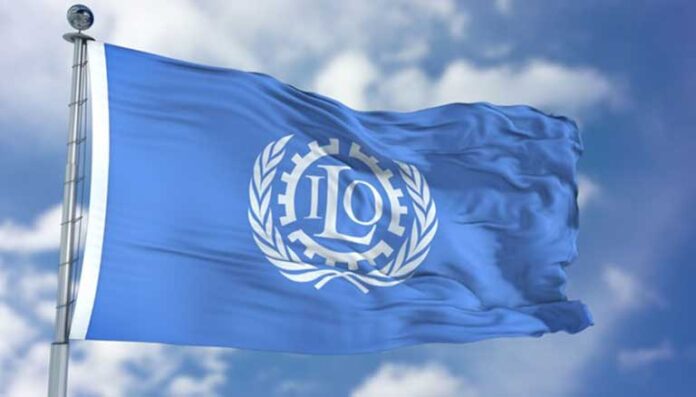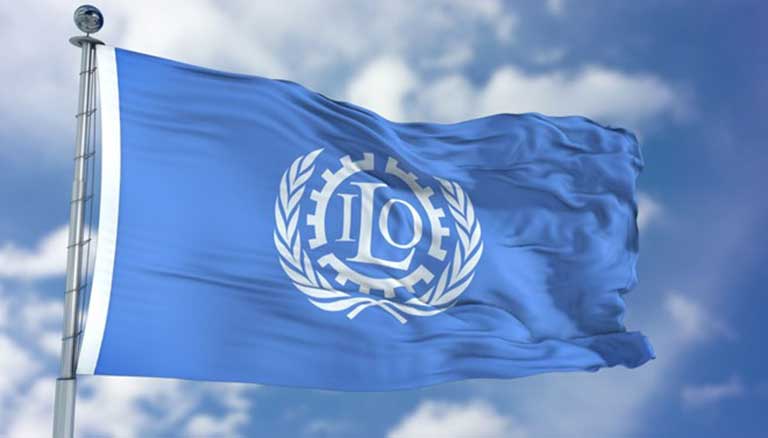
(www.MaritimeCyprus.com) The shipping sector carries 90 per cent of global trade and is the main artery of international supply chains. As of mid-April, the volume of global merchandise trade was falling by 13 per cent, and there are estimates of a decline of 32 per cent or more.
With 384 sailings cancelled, the first half of 2020 could see a 25 per cent reduction in shipping, with a 10 per cent annual fall in 2020.
The impact of COVID-19 on employment in the shipping sector, with its 2 million seafarers, is therefore substantial. The cruise shipping sector, with 250,000 seafarers, has been particularly badly affected, as certain countries have advised against travel by cruise ship, and major cruise companies have suspended operations.
The maritime fishing sector, which employs tens of millions of fishers, is a major supplier of food, and particularly animal protein. Many fishing vessels are unable to leave port and the demand for many seafood products is substantially reduced.
The COVID-19 crisis is affecting the personal safety and health of seafarers and fishers, their conditions of work and their ability to join and leave their vessels, with a consequent impact on their capacity to perform their key role in ensuring transport by sea, serving passengers and harvesting seafood.
1. The coronavirus (COVID-19) pandemic has created a global crisis which has impacted all aspects of life and badly affected the world of work. In the maritime sector, it has severely disrupted the functioning of shipping and affected the work of nearly 2 million seafarers worldwide.
2. Numerous governments and seafarers’ and shipowners’ organizations have turned to the International Labour Office (hereinafter the Office) for guidance on how best to address the complexities of the current crisis in light of the provisions of the Maritime Labour Convention, 2006, as amended (MLC, 2006).
3. This information note aims to respond to such requests by referring to the MLC, 2006, the work of the ILO Committee of Experts on the Application of Conventions and Recommendations (CEACR), a statement of the Officers of the Special Tripartite Committee of the MLC, 2006, (STC) and, when relevant, the recommendations published by the International Maritime Organization (IMO) and the World Health Organization (WHO).
It should be noted that both the International Chamber of Shipping and the International Transport Workers’ Federation have been active since the beginning of this crisis to support seafarers and shipowners worldwide, find concrete solutions to existing challenges and provide advice to their members.
4. In general, it is recalled that under the MLC, 2006, derogations, exemptions or other clauses allowing for flexible application of the Convention by governments must be decided in consultation with shipowners’ and seafarers’ organizations, with any determinations that
are made reported to the Office by the government concerned. The CEACR has on numerous occasions underlined the importance of these consultations for the implementation of the MLC, 2006. This is seen as a necessary and important approach to ensuring that all countries, irrespective of national circumstances, can engage with the international legal system and that international obligations are respected and implemented, to the extent possible, while efforts continue to be made to improve existing conditions. Governments are thus strongly encouraged to consult national seafarers’ and shipowners’ organizations in order to address a number of issues in the current context created by the COVID-19 pandemic in light of the MLC, 2006.
5. On 7 April 2020, when the first version of this information note was published, it was noted that the exceptional circumstances, when and where they prevailed, might render compliance with some of the obligations set out in the MLC, 2006, materially impossible. These exceptional circumstances could constitute cases of force majeure.
Force majeure is “the occurrence of an irresistible force or of an unforeseen event, beyond the control of the State, making it materially impossible in the circumstances to perform the obligation†and which excuses non-compliance with an obligation.
These circumstances “do not annul or terminate the obligation; rather they provide a justification or excuse for non-performance while the circumstance in question subsists†and entail that compliance must resume as “soon as the factors causing and justifying the non-performance are no longer presentâ€.
There must be a causal link between material impossibility and the unforeseen circumstances. In short, the parties involved should make every attempt to comply with their obligations under the MLC, 2006, non-compliance only being excused when compliance is materially and objectively impossible by reason of the occurrence of an irresistible event. While authorities are encouraged to be pragmatic in their approach when confronted with such exceptional circumstances, they should also ensure that the COVID-19 pandemic is not used as an excuse to breach the MLC, 2006.
6. It is important to recall that the test of the applicability of force majeure is an absolute and material impossibility of compliance with an obligation in a given specific case. In contrast, circumstances rendering performance more difficult or burdensome do not constitute a case of force majeure. In other words, from the moment that options are available to comply with the provisions of the MLC, 2006, however difficult or cumbersome these might be, the notion of force majeure may no longer be invoked.
7. The explanations provided below are subject to the usual understanding that the Constitution of the ILO confers no special competence upon the Office to give an authoritative interpretation of an international labour Convention and that the opinions expressed are without prejudice to any position that the ILO's supervisory bodies might take with respect to its subject matter.
ILO, has published a guidance paper to address these issues. Click on below image to download the paper.
Source: ILO














